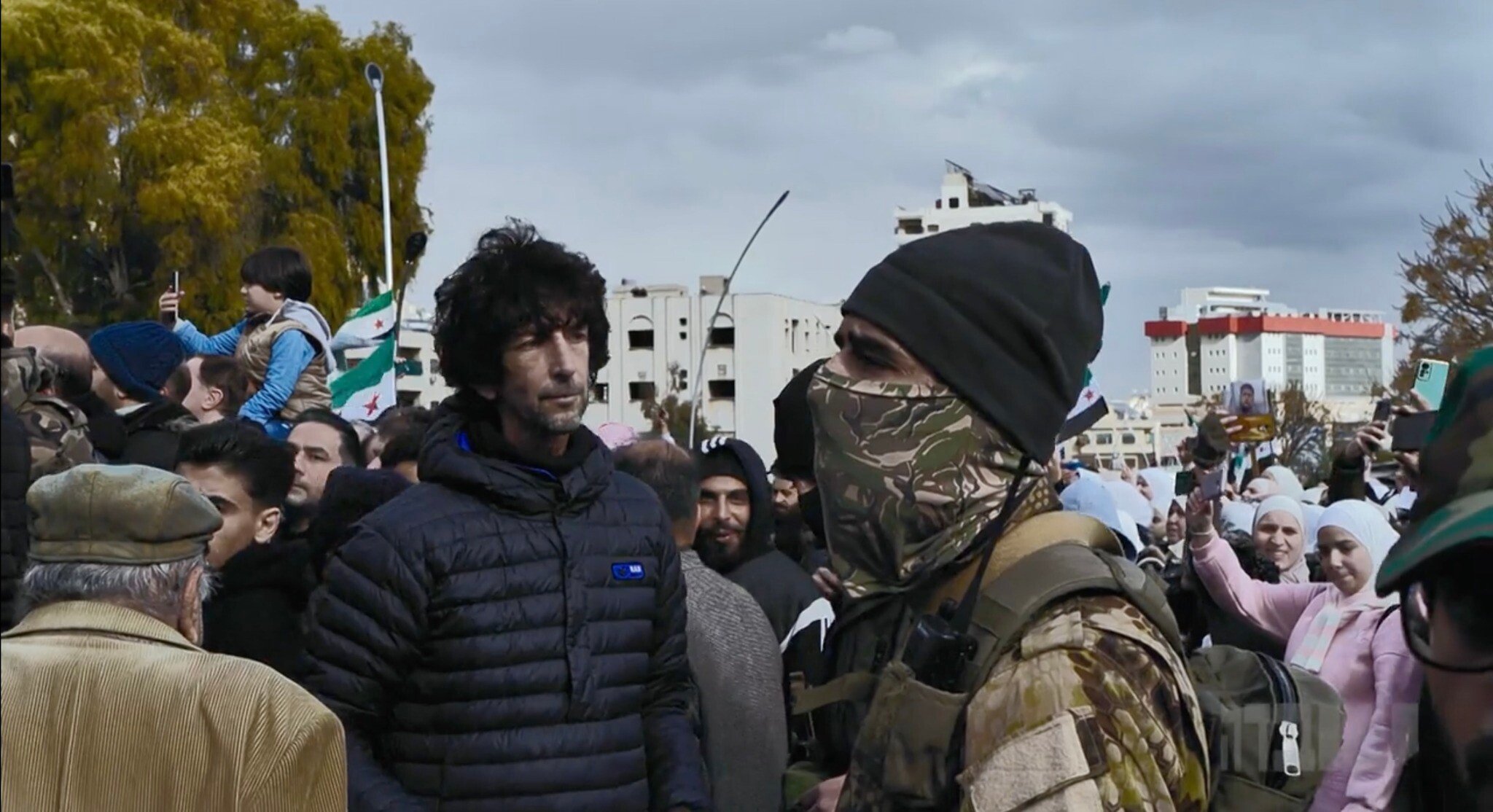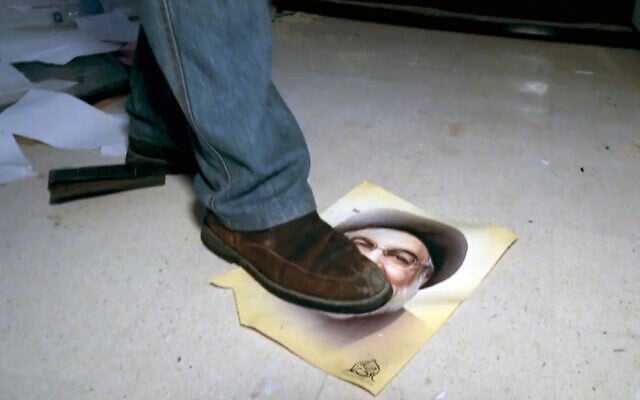



Days after the Bashar al-Assad regime in Syria collapsed, an Israeli journalist wandered through Iran’s “nerve center” in the capital and uncovered piles of classified material belonging to the Jewish state’s archenemy.
In footage aired Monday night on Channel 12’s investigative program “Uvda,” veteran war reporter Itai Anghel found a hidden door inside Iran’s embassy in Syria, behind which he uncovered a massive server farm and mounds of secret files.
Anghel, an Israeli correspondent and documentary filmmaker, is known for his derring-do and reporting from war zones, including in Ukraine, Syria, Iraq, and Lebanon.
Anghel traveled to Damascus last December, shortly after rebels poured south from Idlib to topple the Assad regime, ending over a half-century of oppressive rule. Rebels entered Damascus on December 8, and began putting together a new government headed by former jihadist leader Ahmed al-Sharaa.
“They shredded a lot of documents, but many were left intact,” Anghel said of his findings in the Iranian embassy. “You can see classified materials still there. This was Shi’ite Iran’s greatest power hub. From here, they operated Hezbollah.”
Among other sites, Anghel visited a mosque, a notorious prison for Palestinians, and found military bases left wide open.
“Surely, our [Israeli security] people were also there in the first chaotic days to gather intelligence… I wandered alone in the bases,” he explained. “You could take grenades or the warheads of fighter jets.”
While Anghel was sifting through papers, a Syrian civilian, Yasser Abbas, entered the embassy and began to express outrage at Iran. He held up a picture of his son, who viewers were told was killed by Hezbollah operatives in 2013.
The Iranian mission here scared the world. Their goal was to conquer the entire Middle East
“The Iranian mission here scared the world. Their goal was to conquer the entire Middle East…through Assad and his crew,” Abbas told the camera.

Anghel also discovered lists of the embassy’s contacts in Hezbollah, as well as lengthy documents filled with the names of targeted enemies, including many Israeli and Jewish names.
Anghel visited an abandoned factory where large quantities of drugs, notably the stimulant captagon, were stored. The production and distribution of captagon had become a significant revenue stream for the Assad regime and its allies, including Iranian proxies operating within Syria.
According to reports, Hamas terrorists consumed captagon pills brought from Syria before invading southern Israel on October 7, 2023.
Throughout his visit, Anghel engaged with soldiers from the Hayat Tahrir al-Sham (HTS) army, which led the advance that toppled Assad last December. Speaking to an HTS officer, Anghel narrated to viewers that most soldiers whom he spoke with attempted to distance themselves from extremist groups like al-Qaeda and ISIS, and were noticeably cautious to criticize Israel.
At the same time, he noted the waving of Al-Qaeda flags in crowds as he walked through Damascus and one soldier who explicitly stated that the new army intended to implement Shariah law on Syria’s people.
After visiting the square where Israeli spy Eli Cohen was publicly executed in 1965, Anghel speculated that under the new regime, Israel might be able to finally recover Cohen’s body, whose burial site is unknown, after 60 years of efforts to return his remains to Israel.
Syrian civilian Abu Abdu told Anghel that Muslims, Christians and Jews “have always lived together in Syria,” before showing Anghel a synagogue, which had long been locked with a bolt. A Christian Syrian woman expressed fear to Anghel that the new leadership would be hostile toward non-Muslim populations.

Later in the documentary, Anghel met one of the last remaining Jews in Syria. Bachur Simantov, who calls himself “Id” to better blend in, wished Anghel a “Shabbat Shalom” from his balcony, showed him around the city and brought him to a local hummus restaurant. Simantov said that few Jews remain, “about 9 or 10, no more.”
Until 1992, when Syrian law changed to allow Jews to leave the country, the Syrian Jewish community was among the strongest in the Middle East. “After that, everyone left. Except me,” said Simantov with a smile.
While Egypt acknowledged Syria’s new government and invited al-Sharaa to an Arab League summit in March, Foreign Minister Gideon Sa’ar encouraged his European counterparts not to trust the new government in Syria, calling it “a Jihadist Islamist terror group from Idlib” during meetings in Brussels on Monday.

